What were you doing at the age of 31? Whatever you were up to, it’s unlikely you were preparing to take the reins of your country as its youngest ever leader.
That’s the prospect facing Sebastian Kurz, nicknamed “Wunderwuzzi” (roughly translated, it means someone who can walk on water) and the man widely expected to become Austria’s next Chancellor on Sunday.
Described by one political analyst as “the dream son-in-law for middle class Austrian women,” and another as Austria’s version of Emmanuel Macron and Justin Trudeau, Kurz’s rise has been as remarkable as it has been improbable.
Kurz took over as head of the center-right Austrian People’s Party (ÖVP) in May. In the few short months since, he has transformed a party which has been in coalition government for the past 30 years into his own personal movement.
He’s re-branded, renaming it the “The New People’s Party” and dumping its traditional black color scheme in favor of a bright turquoise hue aimed at giving it an “anti-establishment” look.
Kurz has pushed his party to the right of its already center-right stance, and taken up a firm position on the big issue dominating this election: Immigration.
Since the 2015 refugee crisis, Austria’s political landscape has shifted to the right – a move which analysts put down to the country having received more than 100,000 asylum seekers fleeing violence in the Middle East.
Shifting stance
Kurz’s tactics have led to accusations that he has copied the policies of the populist, far-right Freedom Party – a year after it almost caused a political earthquake in Austria.
In May 2016, the Freedom Party’s Norbert Hofer came within touching distance of the presidency, losing by just 31,000 votes to his Green Party rival Alexander Van der Bellen.
Hofer then disputed the outcome, forcing the authorities to annul the election result over postal voting irregularities.
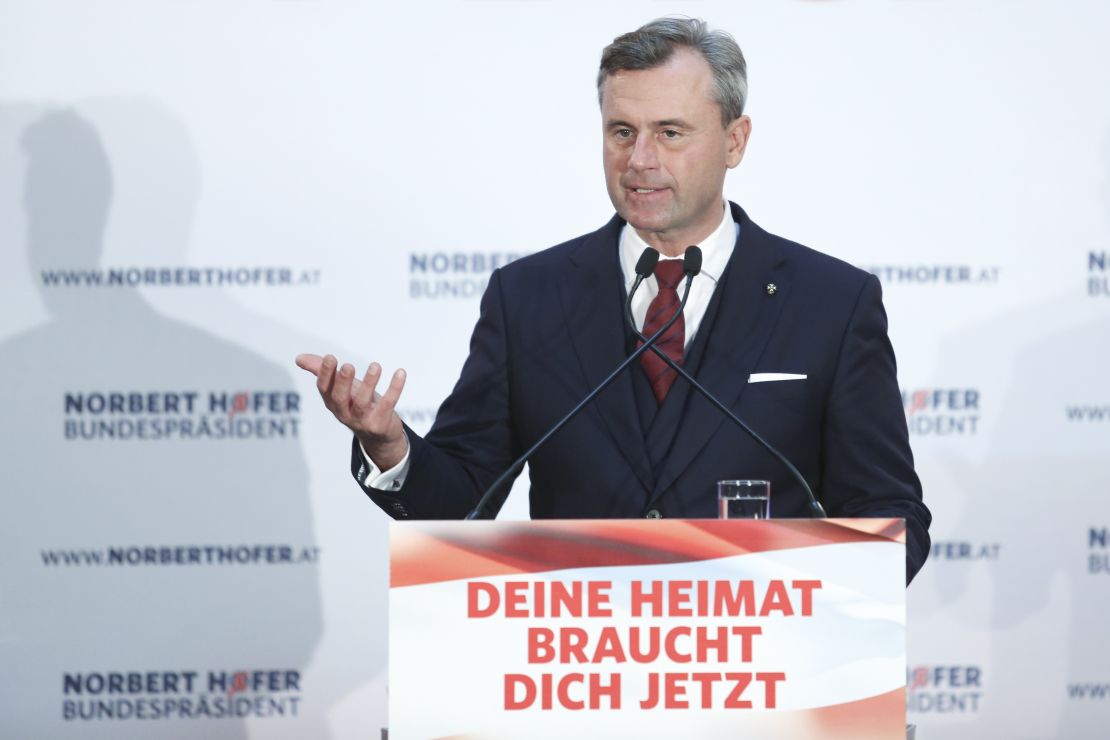
The establishment rallied behind Hofer’s opponent in the re-run, electing Van der Bellen as the nation’s first left-wing president since World War II.
But despite Van der Bellen’s victory, the debate had been framed by Hofer, ensuring the Freedom Party’s agenda remained center stage.
That success was not lost on Kurz, so when a snap election was called after the collapse of the coalition government in May, he took the initiative.
Austrian political analyst Thomas Hofer says the party leader has positioned himself “smartly,” boosting his party’s popularity with right-wing voters.
“Kurz has managed to take over the Freedom Party issues and frame them in a socially acceptable way,” he says. “He has appealed to those who could have voted for the Freedom Party.”
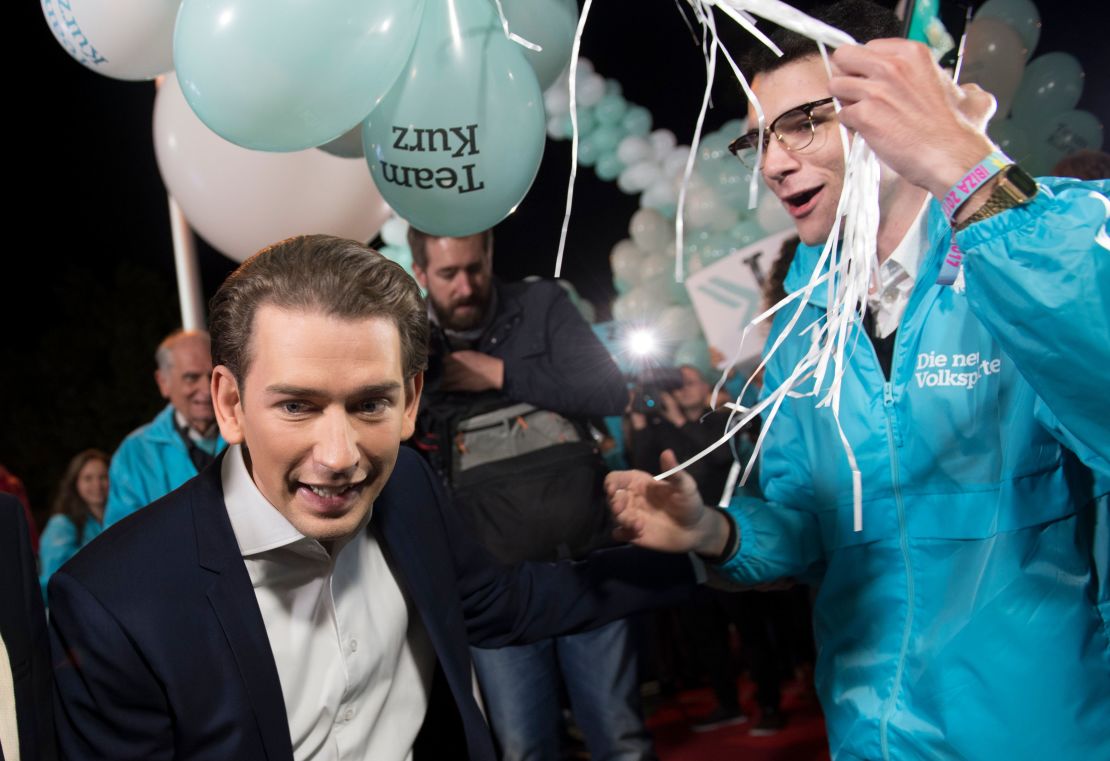
In addition to backing plans to block refugee routes into Europe through the west Balkans and across the Mediterranean, he also supported a ban on the full face veil (implemented earlier this month) and pledged to crack down on radical Islam.
“The immigration issue has made Kurz into a star,” Hofer added. “It has moved the whole country to the right but it hasn’t really changed people’s lives.
“Most people in this country are not affected by another 100,000 migrants. It’s more of a psychological issue.”
Kurz has advocated reducing benefits for migrants, while the subject of whether EU citizens living in the country should receive the same perks as Austrian citizens has become a hot topic.
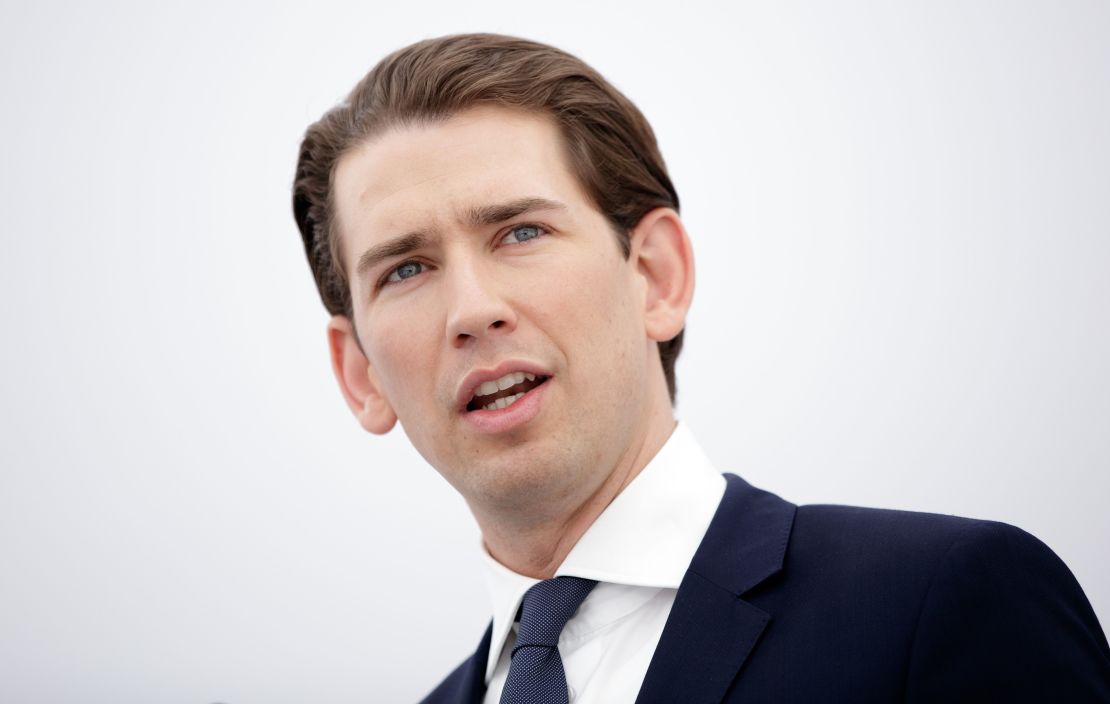
Thomas Hofer says he believes Kurz is attempting to bring about a “soft change” within Austria and in the country’s relationship within Europe.
But the political analyst rejects comparisons between Kurz and Hungary’s right-wing leader, Viktor Orban, who has been censured for his treatment of migrants by the European Union.
“Even though Kurz is trying to devise policies to make Austria less attractive to migrants, he’s not trying to be hostile like Orban,” Hofer says.
And while Kurz may bring Austria closer to the Visegrad group – an alliance of European nations critical of EU integration and the EU’s immigration policy – Hofer says there is no appetite for leaving the bloc.
Where now?
Kurz’s emergence on the political stage is likely to ensure his party remains in government, but the identity of his junior coalition partner remains in question.
A year ago, the Freedom Party appeared to be in pole position.
Unlike in Germany, where the success of the far-right Alternative for Germany (AfD) party in recent elections caused a seismic shock, the Freedom Party has long been part of Austria’s political landscape.
Founded by former Nazis in the 1950s, the Freedom Party became the first of its type to go into government in post-war Europe, forming a coalition with the People’s Party in 2000.
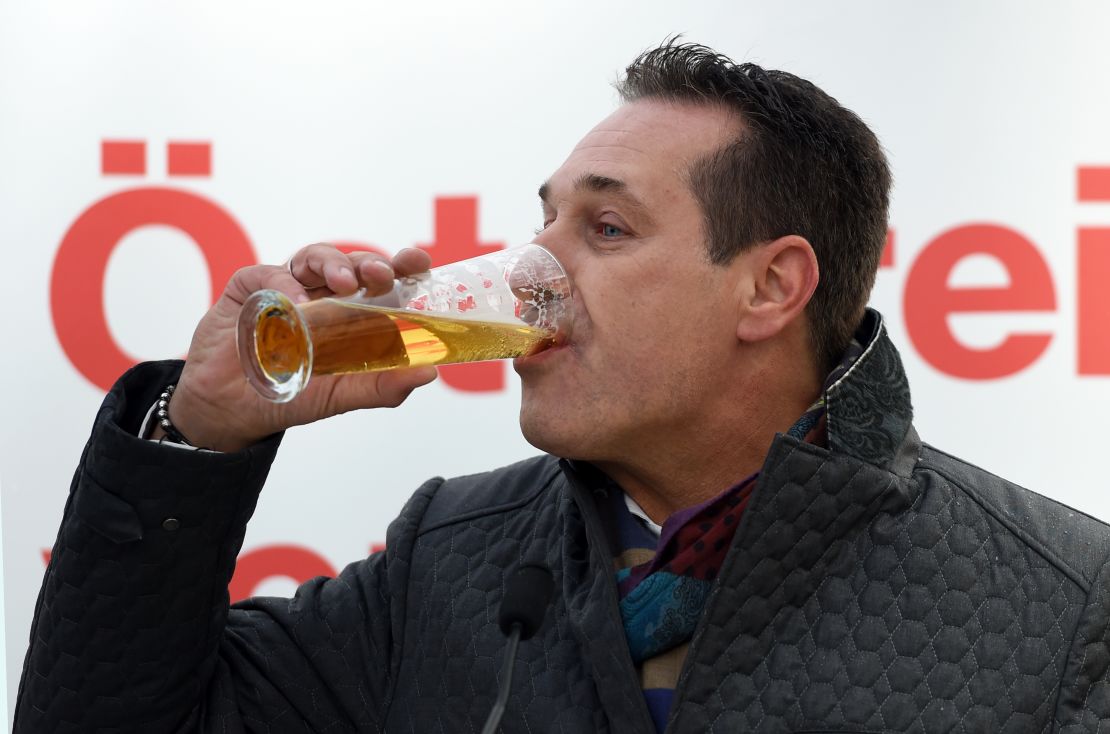
Leader Heinz-Christian Strache, who took the helm in 2005, has sought to give the party a facelift, though accusations of anti-Semitism and Islamaphobia continue to linger.
But political analyst Alexandra Siegl said it is facing a tough battle this time around.
“The image of the FPO has changed a lot since the presidential election,” she told CNN. “But voters don’t have to vote for the ‘bad’ right-wing party if they can vote for the ‘friendly’ center-right party and still get the same package.
“The positions between the parties aren’t that different any more. The FPO is trying to frame Kurz as somebody who is just a follower, not a leader, on the issue of migration.”
While the Freedom Party appear well-placed to enter what would be a right-far-right coalition, Austria’s center-left Social Democrats are facing a tough electoral battle.
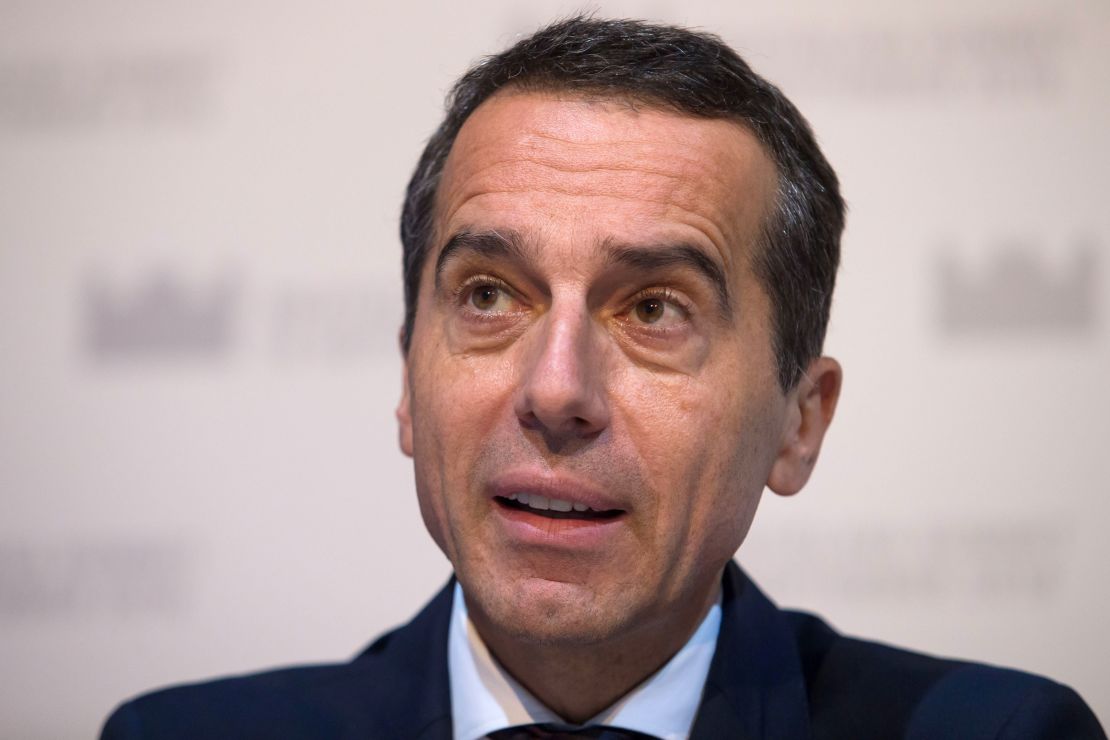
Current Chancellor Christian Kern has endured a difficult campaign, blighted by allegations that one of his party’s advisers had created a slew of websites which ran racist and anti-Semitic stories in an effort to damage Kurz’s reputation.
The Social Democrats appear unlikely to survive in their current role as the majority party in a coalition government, with relations between them and the People’s Party strained by the scandal.
Instead, the public are expected to put their faith in Kurz, a man presenting himself as the “change candidate,” despite having spent his entire career in politics.
“Kurz has never had another job,” said Anton Pelinka, a professor at the Central European University in Budapest. “He’s a young face, but he’s not a new face.
“He speaks well and although he talks about outrageous topics, he does it in a soft and civilized manner. He plays the insider who behaves as the outsider in a very polite way.”



